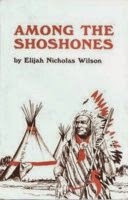Every summer my family and I take a vacation to our cabin in
Michigan. It’s a tiny cabin that sits between two small lakes. I haven’t gone a
single summer of my life without visiting this special spot.
 Most of my strongest childhood memories come from these cabin
trips. It’s a child’s dream come true; fishing, daydreaming, and exploring the
thick woods and wild apple trees that surround the lakes.
Most of my strongest childhood memories come from these cabin
trips. It’s a child’s dream come true; fishing, daydreaming, and exploring the
thick woods and wild apple trees that surround the lakes. A trip to the cabin would not be complete without my father’s retelling of his scary stories before bed each night. His most well known story is called, “The Great White Ape”.
The story is given differently each time, but the plot always
remains: The weather is dark and stormy. We find a castle and enter to find a
giant white ape in a cage with a sign that reads, “Do NOT touch the Great White
Ape.” Well someone always ends up touching the Ape and chaos ensues. The Great
White Ape breaks from the cage and chases us around the house until he catches
us. Tension mounts and the end seems near— it’s in that moment that the Ape
reaches out and taps us with one finger, saying, “Tag! You’re it.”
There are many reasons why this oral literary tradition has made such a profound impact upon me, but what always stunned me is the fact that the story always changed! When new brothers were born, new characters were added. Details about how we found the castle or how the Ape was first touched were also apt to change. And this is what made our tradition so special. I learned an important concept: art and literature adapt. It’s this aspect of change that makes life and storytelling so mystifying. There is always a new story to be told.
